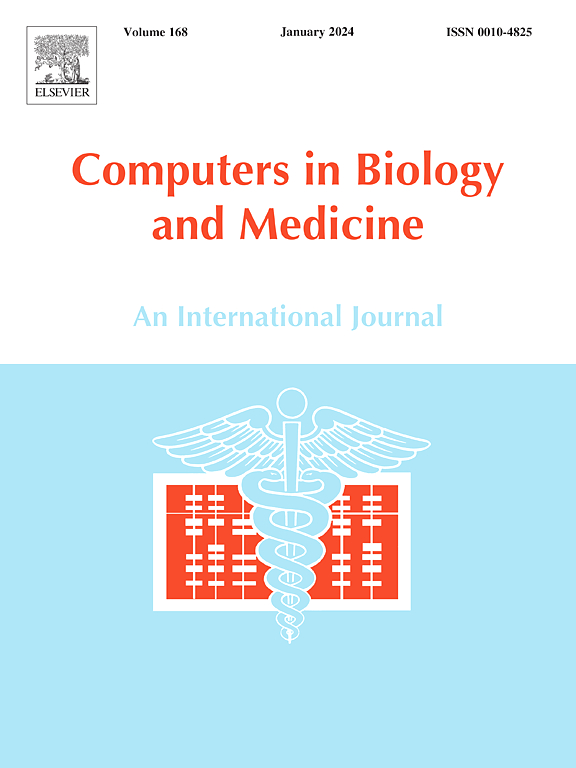Unraveling the relapse-associated landscape and individualized therapy in stage I lung adenocarcinoma based on immune and mitochondrial metabolism hallmarks via multi-omics analyses
IF 7
2区 医学
Q1 BIOLOGY
引用次数: 0
Abstract
Lung adenocarcinoma (LUAD) is characterized by significant molecular heterogeneity and high recurrence rate even among stage I patients. There is an urgent quest for reliable biomarkers to recognize early-stage patients at high risk and guide potential treatment. Considering the pivotal role of immune and mitochondrial metabolic hallmarks in tumor initiation and progression, we rigorously included four independent cohorts of stage I LUAD patients with or without relapse. A consensus immune and mitochondrial metabolism genes-related signature (IMMS) is then constructed via 101 machine-learning combinations. IMMS classified all patients into high- and low-risk groups and exhibited a leading predicting accuracy compared with 70 previously published signatures. Subsequently, comprehensive analysis of the multi-omics data discovered elevated genomic heterogeneity, cancer stemness, metabolic reprogramming, immune escape, and tolerance to immune therapy in the high-risk group, which promotes the survival and proliferation of tumor cells. After the analysis of multiple drug databases, mitoxantrone is considered a candidate drug for stage I high-risk LUAD patients. The research of single-cell data further supported the tight association between IMMS and tumor cell characteristics. Overall, our study developed a novel signature and emphasized the role of immune escape and metabolic reprogramming hallmarks in recurrence, offering valuable insights into clinical prognosis, molecular mechanism, and individualized therapy for stage I LUAD patients.
通过多组学分析,基于免疫和线粒体代谢标志揭示肺腺癌 I 期的复发相关情况和个体化治疗。
肺腺癌(LUAD)具有明显的分子异质性,即使是 I 期患者也有很高的复发率。目前迫切需要可靠的生物标志物来识别早期高危患者并指导潜在的治疗。考虑到免疫和线粒体代谢标志物在肿瘤发生和发展中的关键作用,我们严格纳入了四个独立队列的有或无复发的 I 期 LUAD 患者。然后通过 101 种机器学习组合构建了一个共识的免疫和线粒体代谢基因相关特征(IMMS)。IMMS 将所有患者分为高危和低危两组,与之前发表的 70 个特征相比,其预测准确率遥遥领先。随后,对多组学数据的综合分析发现,高危组中的基因组异质性、癌症干性、代谢重编程、免疫逃逸和对免疫治疗的耐受性都有所提高,这促进了肿瘤细胞的生存和增殖。经过多个药物数据库的分析,米托蒽醌被认为是治疗I期高危LUAD患者的候选药物。单细胞数据的研究进一步支持了 IMMS 与肿瘤细胞特征之间的紧密联系。总之,我们的研究建立了一个新的特征,强调了免疫逃逸和代谢重编程特征在复发中的作用,为I期LUAD患者的临床预后、分子机制和个体化治疗提供了有价值的见解。
本文章由计算机程序翻译,如有差异,请以英文原文为准。
求助全文
约1分钟内获得全文
求助全文
来源期刊

Computers in biology and medicine
工程技术-工程:生物医学
CiteScore
11.70
自引率
10.40%
发文量
1086
审稿时长
74 days
期刊介绍:
Computers in Biology and Medicine is an international forum for sharing groundbreaking advancements in the use of computers in bioscience and medicine. This journal serves as a medium for communicating essential research, instruction, ideas, and information regarding the rapidly evolving field of computer applications in these domains. By encouraging the exchange of knowledge, we aim to facilitate progress and innovation in the utilization of computers in biology and medicine.
 求助内容:
求助内容: 应助结果提醒方式:
应助结果提醒方式:


